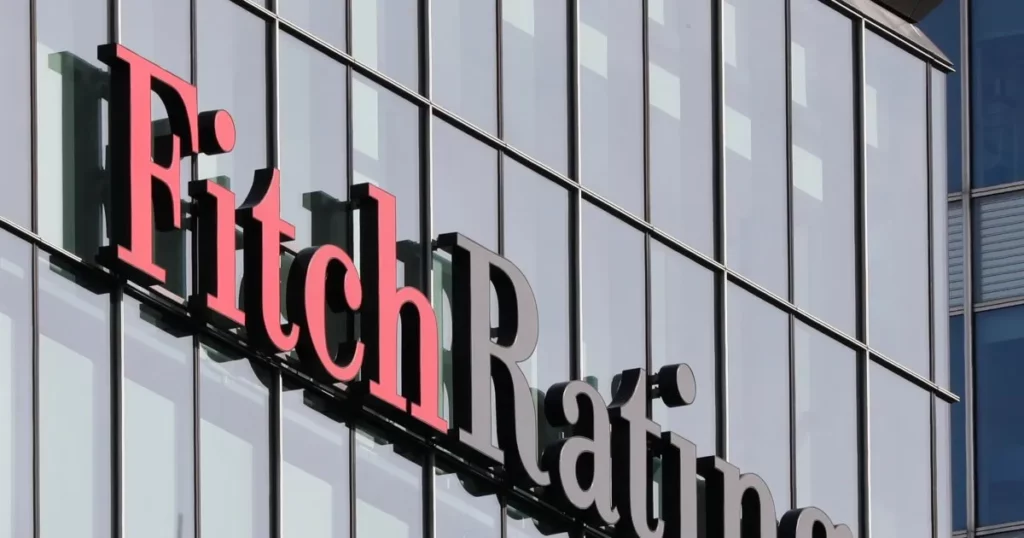
The downgrading of Fitch Ratings for China, from China’s long-term foreign-currency issuer default rating (IDR) from ‘A+’ to ‘A,’ clearly confirms that China’s economic problems are becoming more fully recognized by the day. It signals the weakening of China’s public finances and the rising trajectory of public debt. The downgrade also highlights China’s long-running debt crisis in the property sector and persistently low consumption. However, it will be extremely difficult for the Xi government to deny that economic policies are flawed.
The downgrade has dealt a significant blow to China’s global reputation and standing amid a rapidly shifting global geo-economic situation.
Embarrassed by the rating’s forecast, China’s Finance Ministry criticized the downgrade. A ministry spokesperson said, “The downgrade of China’s sovereign credit rating is biased. We deeply regret this and do not recognize it.”
Contrary to the tall claims by the Xi government, Fitch Ratings has confirmed that all is not well with China’s economy. In April last year, the credit rating agency expressed doubts about the future of Chinese finance. Earlier that month, it had reaffirmed China’s high A+ rating but downgraded the country’s “outlook.” Fitch had revised the outlook on China’s Long-Term Foreign-Currency Issuer Default Rating (IDR) to Negative from Stable, citing increasing risks to China’s public finances as the country grappled with more uncertain economic prospects during a transition away from property-reliant growth to what the government views as a more sustainable model.
Fitch’s announcement followed Moody’s, which had downgraded China’s credit rating outlook in December 2023. Rating agency Moody’s Investors Service cut its outlook on China’s sovereign credit rating to negative, citing growing risks of persistently lower midterm economic growth and the overhang from a crisis in the property sector.
Financial experts are not surprised by China’s remarks regarding these ratings, which have chronicled and explained China’s severe economic and financial challenges over the last 24-30 months. Irritated by the agency’s findings, Chinese economists criticized Fitch in April last year. They argued that Fitch’s move showed profound bias and methodological flaws, as it seemingly relied too heavily on negative headlines from Western media and failed to highlight the growing positive factors within the Chinese economy. In comparison, they noted that China’s economy remains one of the healthiest among major economies.
However, global economists have disagreed with this view. They pointed out that the debt situation has worsened rapidly since the pandemic, on both sides of the equation—rising government spending on anti-pandemic measures and slowing economic growth. According to data from China’s National Institution for Financial Development and the Center for National Balance Sheets, the combined categories of general, central, and local government debt to GDP rose from 77.2% at the end of 2019 to 111.8% by the end of 2023. Other estimates, such as those from the Bank for International Settlements, put China’s government debt to GDP at a more benign 81.2%.
The rating agencies have identified challenges affecting China’s financial health, with the property crisis being one of the most prominent. The crisis has significantly depressed sales and activity in what was once a dominant sector of China’s economy. By lowering real estate values, this collapse has reduced household wealth and, in turn, restrained consumer spending. As a result, the crisis and its fallout have slowed China’s economic growth. In fact, the failure of property developers has saddled markets with so much questionable debt that confidence in repayment has diminished, further hampering borrowing and lending to support future growth. Fitch also criticized Beijing for waiting years to address this critical issue.
Regarding the health of government finances, rating agencies have highlighted the enormous debt burdens carried by local Chinese governments, which have adversely affected their performance. According to Forbes, these governments had already faced significant debt even before the property collapse began in 2021. Due to China’s practice of requiring local governments to issue “special-purpose bonds” to finance infrastructure projects, these governments had already accumulated considerable debt. On top of this, the property crisis has deprived local governments of significant revenue sources, making it even more difficult to service their debts. Fitch estimates that these local governments may have hidden debt burdens approaching $11 trillion. Some local authorities have been forced to cut back on public services due to difficulties in servicing their debts.
Rating agencies play a crucial role in shaping the economic outlook of countries. They assess a country’s ability to repay its debt, and their ratings signal to investors how risky it is to lend to that country. Countries often issue bonds to raise money, and investors use credit ratings to decide whether to invest and what returns they expect. China is fully aware that a downgrade in its ratings can have large financial implications, potentially leading to currency depreciation, reduced foreign direct investment (FDI), and triggering stock market volatility. More importantly, investors view a downgrade as a red flag. China’s downgrade is likely to drag down corporate ratings as well, increasing borrowing costs across the board. Credit ratings affect how the global community perceives a country, and in China’s case, they will influence its position in international negotiations, its membership position in trade or investment groups and its eligibility for any aid or favourable terms.